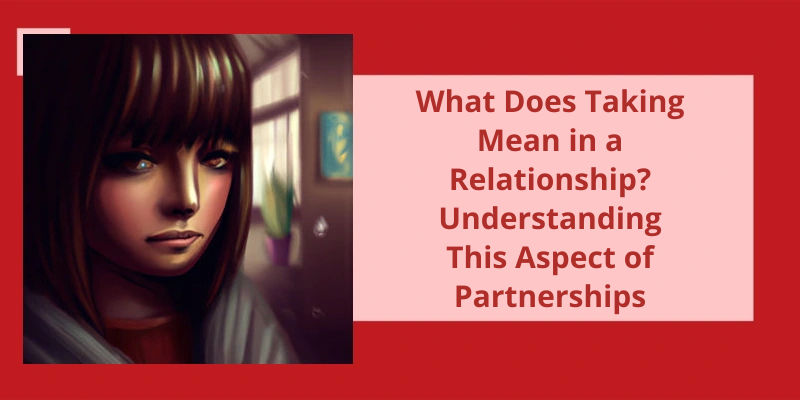Narcissism is a personality disorder that affects how individuals view themselves, and interact with others. They may seek validation from others, and use manipulation tactics to get what they want. However, when a narcissist is faced with rejection or abandonment, they can become shocked and distressed. They might try to manipulate the situation or react angrily, but ultimately they’re afraid of losing control and being alone.
How Do Narcissists React When You Cut Them Off?
If youre dealing with a narcissist, it’s important to understand that their behavior isn’t a reflection of you. They thrive on attention and control, and cutting them off threatens their sense of power. As a result, they may resort to extreme behaviors, such as stalking or harassment, to try to win you back. It’s important to prioritize your safety and seek help if needed.
One common tactic that narcissists use when they feel threatened is gaslighting. They may try to convince you that your perception of the situation is wrong or that youre overreacting. This can be especially difficult to navigate if youre already feeling unsure about your decision to cut them off. Remember that your feelings are valid and trust yourself.
Finally, it’s important to prioritize your own healing and well-being after cutting off a narcissist. Narcissistic abuse can have long-lasting effects on your mental and emotional health, and it’s important to seek support from a therapist or trusted friends and family. Remember that healing is a process, and it’s okay to take your time and prioritize your own needs.
Narcissists may resort to extreme behavior when they feel threatened, so it’s important to set clear boundaries and seek help if needed.
Tips for Setting Boundaries With a Narcissist
Here are some suggestions for establishing boundaries with someone who displays narcissistic tendencies. Firstly, be assertive and clear with your communication – use “I” statements, and avoid blaming or attacking language. Set limits on what behaviours you’ll and won’t tolerate, and express them calmly. Remember that a narcissistic person may not acknowledge or respect your boundaries, so be prepared to enforce them if necessary. Maintain your own sense of self-worth and focus on your own needs, rather than allowing the narcissist to dominate or manipulate the situation. Lastly, seek support from trusted friends or a therapist if needed.
Being in the presence of someone who exudes strength and independence is often enough to send a narcissist running. Their fear of being seen as inferior dominates their every thought and action, causing them to behave both aggressively and defensively. In this article, we’ll explore the many different triggers that can cause a narcissist to feel intimidated and what this means for their relationships and interactions with others.
What Intimidates a Narcissist?
But what really intimidates a narcissist is a person who’s unaffected by their charm and manipulation tactics. Someone who’s intelligent, self-aware, and confident enough to see through their facade and call them out on their behavior. This is because narcissists rely heavily on their ability to charm and control others in order to maintain their inflated sense of self-importance. When this tactic fails, they become incredibly insecure and may lash out in anger or withdraw completely.
Narcissists are also intimidated by those who’re more successful or accomplished than they are. This is because they’re driven by a deep-seated fear of inferiority and see any success as a direct threat to their own sense of worth. To a narcissist, being outshined by someone else is a fate worse than death, and they’ll do whatever it takes to undermine the success of those around them.
Intimacy is another thing that can intimidate a narcissist. They’ve a difficult time forming deep and meaningful connections with others, as they’re too preoccupied with maintaining their own sense of superiority. This is why they often engage in superficial relationships and are wary of anyone who tries to get too close. In fact, the idea of vulnerability and true emotional intimacy can be terrifying to a narcissist, as it threatens their carefully constructed image of themselves as invulnerable and all-powerful.
They’re used to getting their own way and manipulating others to do their bidding. When someone asserts their own needs and refuses to be pushed around, it can be a major blow to their ego. This is why many narcissists will resort to verbal or even physical aggression in order to regain control. However, those who’re able to stand firm and maintain their boundaries often find that the narcissist will eventually move on to easier prey.
Strategies for Dealing With Narcissists, Such as Setting Boundaries and Asserting Your Own Needs
This topic discusses various strategies for dealing with narcissists. Some of these strategies include setting boundaries and asserting your own needs. These strategies can help individuals better cope with the behaviors of narcissists in their lives.
It’s important to note that when dealing with a narcissist, ignoring them may not necessarily be the best option. While it may seem like the easiest way to protect yourself as an empath, it can often be met with intense reactions from the narcissist. Understanding how to effectively communicate and set boundaries with a narcissist may be a more productive approach in the long run.
What Happens When an Empath Ignores a Narcissist?
When an empath ignores a narcissist, the narcissist will often ramp up their efforts to seek attention, validation, and admiration. They may become even more manipulative and deceptive in their attempts to win over the empath, all while maintaining their facade of confidence and superiority.
Ignoring a narcissist can also trigger their need for revenge. If the narcissist feels slighted or rejected, they may resort to malicious tactics such as spreading rumors, lying, or sabotaging the empaths reputation. Narcissists have a tendency to see any criticism as a personal attack, so ignoring them can trigger their paranoia and encourage them to retaliate in harmful ways.
By refusing to engage in the narcissists toxic behavior, the empath can maintain their own sense of emotional well-being and protect themselves from further harm.
However, by staying strong and focused on their own needs and well-being, the empath can break free from the cycle of abuse and take back control of their life.
It can also be a wake-up call for the narcissist, who may realize the error of their ways and seek to change their behavior.
How to Identify and Cope With Narcissistic Abuse as an Empath
- Recognizing narcissistic abuse patterns
- Understanding your own empathic abilities
- Setting healthy boundaries with toxic individuals
- Developing self-care practices to combat emotional exhaustion
- Seeking professional support and guidance
Source: What does a narcissist do when an empath walks away?..
It’s important for empaths to recognize that leaving a narcissist is only the first step in a long road towards healing. The aftermath of a toxic relationship can take a significant toll on one’s mental and emotional well-being, and it may take time to fully recover. In this next part, we will explore the steps empaths can take to heal and move forward after leaving a narcissistic partner.
What Happens When an Empath Leaves a Narcissist?
Leaving a narcissist can be a difficult and emotional process for an empath. One of the main reasons for this is that empaths often give a lot of themselves in relationships, and a narcissist will take advantage of this. Narcissists are often extremely charming and manipulative, and they know how to play on an empaths emotions to get what they want. As a result, an empath is likely to feel a sense of loss when they leave the relationship, as theyve invested so much of themselves into it.
This is because narcissists will often try to control their partners, and will do everything they can to make their partners depend on them. They may also feel like theyve lost their sense of purpose, since they were so focused on pleasing their partner while they were in the relationship.
As a result, the empath may start to believe that they were the problem in the relationship, even though the narcissist was the one who was controlling and manipulative. This can be a difficult mindset to shake, and it may take some time for the empath to realize that theyre not to blame for the relationships problems.
It’s important for empaths to remember that they deserve to be treated with respect and love, and that leaving a toxic relationship is the first step in reclaiming their power. With time and effort, empaths can heal from the trauma of being in a relationship with a narcissist, and they can go on to experience healthy, loving relationships in the future.
Signs That Someone Is in a Relationship With a Narcissist
- Constantly seeking attention and admiration from others
- Belittling or criticizing their partner to boost their own self-esteem
- Putting their own needs and wants above their partner’s
- Manipulating their partner to get what they want
- Lack of empathy or concern for their partner’s feelings
- Making everything about themselves
- Being extremely sensitive to criticism or rejection
- Isolating their partner from friends and family
- Gaslighting their partner by denying or downplaying their experiences and feelings
- Using sex as a tool for control or domination
Conclusion
Their need for control and constant validation means that any form of rejection or disapproval is a major blow to their ego. Therefore, it’s important to remember that narcissists' reactions to rejection are a reflection of their own insecurities and shouldn’t be taken personally by those who choose to separate themselves from these toxic individuals. It’s vital to prioritize our own well-being and boundaries, even if it means disappointing a narcissist.






